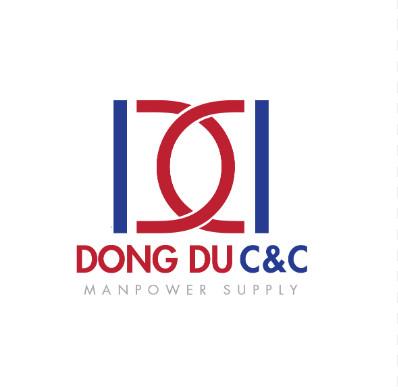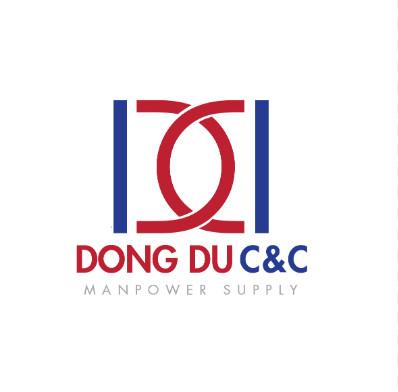The Fuel Cell Stack Health Monitoring Market is witnessing significant growth, driven by the increasing adoption of fuel cell technologies across automotive, aerospace, and industrial sectors. Rising environmental concerns and stringent emission regulations are pushing industries to invest in sustainable energy solutions, positioning fuel cell systems as a viable alternative to conventional energy sources.
Fuel cell stacks require continuous monitoring to ensure optimal performance and longevity. Advanced health monitoring systems provide real-time insights into stack conditions, enhancing efficiency and preventing potential failures. This proactive approach reduces maintenance costs and minimizes downtime, making these systems critical for large-scale deployment in commercial and industrial applications.
Technological advancements in sensor integration, data analytics, and IoT connectivity are further boosting market adoption. With real-time diagnostics and predictive maintenance capabilities, fuel cell health monitoring solutions are becoming increasingly sophisticated, enabling stakeholders to make informed decisions about system operations and maintenance schedules.
https://researchintelo.com/request-sample/70005
Key Drivers Propelling Market Expansion
Several factors are fueling the growth of the Fuel Cell Stack Health Monitoring Market:
-
Government Support: Incentives for clean energy adoption are encouraging investment in hydrogen and fuel cell technologies worldwide.
-
Rising Electric Vehicle Demand: The automotive sector’s shift toward hydrogen-powered vehicles is increasing the need for reliable stack monitoring solutions.
-
Operational Efficiency: Monitoring systems reduce unplanned downtime and optimize fuel cell performance, providing cost savings over the long term.
Moreover, the push for smart industrial infrastructure and Industry 4.0 integration is accelerating demand for advanced monitoring systems capable of predictive maintenance and operational analytics.
Market Restraints
Despite strong growth prospects, the market faces certain challenges:
-
High Initial Costs: Advanced monitoring systems involve significant upfront investments, which can be a barrier for small and medium enterprises.
-
Complex Technology Integration: Deploying health monitoring systems requires expertise in sensors, data processing, and IoT frameworks, which may slow adoption.
-
Limited Awareness: Some industries are still unfamiliar with the long-term benefits of proactive stack health management, impacting market penetration.
Addressing these challenges through technology standardization and cost reduction strategies is likely to further enhance market growth over the coming years.
Emerging Opportunities
The Fuel Cell Stack Health Monitoring Market offers substantial opportunities:
-
Predictive Analytics Adoption: Integrating AI and machine learning can provide deeper insights, enabling predictive maintenance and reducing operational risks.
-
Global Hydrogen Initiatives: Growing investments in hydrogen infrastructure across North America, Europe, and Asia-Pacific are creating new avenues for market expansion.
-
Industrial Applications Beyond Automotive: Sectors like aerospace, power generation, and material handling are increasingly adopting fuel cell technologies, boosting the need for reliable monitoring solutions.
https://researchintelo.com/report/fuel-cell-stack-health-monitoring-market
Market Dynamics and Value Insights
The global Fuel Cell Stack Health Monitoring Market was valued at approximately USD 350 million in 2024 and is projected to reach around USD 780 million by 2030, growing at a CAGR of 13.5% during the forecast period. North America and Europe currently dominate the market due to well-established hydrogen and fuel cell infrastructure. Meanwhile, Asia-Pacific is emerging as a high-growth region, driven by government investments and rapid industrialization.
Integration of IoT-enabled sensors and cloud-based analytics platforms is a major trend shaping market dynamics. These innovations enable continuous monitoring, remote diagnostics, and seamless integration with existing industrial systems, thereby enhancing overall operational efficiency.
Competitive Landscape
The market is characterized by intense technological innovation, with research and development focusing on enhancing sensor accuracy, reducing latency, and expanding system compatibility. Standardization of protocols and cross-industry collaborations are also anticipated to drive further growth, making fuel cell stack health monitoring systems more accessible to diverse end-users.
Regional Insights
-
North America: Strong government incentives for hydrogen and fuel cell adoption drive high market penetration.
-
Europe: Strict emission regulations and sustainability initiatives are creating significant demand for stack monitoring solutions.
-
Asia-Pacific: Rapid industrialization, coupled with large-scale hydrogen infrastructure projects, is positioning the region as a key growth market.
-
Rest of the World: Emerging economies are gradually investing in clean energy technologies, presenting new growth avenues for the market.
https://researchintelo.com/request-for-customization/70005
Technological Advancements Driving Innovation
Recent advancements in sensor technology, data analytics, and remote monitoring systems are transforming fuel cell stack health management. Smart sensors capable of detecting voltage fluctuations, temperature variations, and pressure anomalies enable operators to anticipate potential failures before they escalate. Additionally, predictive algorithms powered by AI allow stakeholders to optimize maintenance schedules, reducing operational disruptions and extending the lifespan of fuel cells.
The convergence of IoT and cloud computing is another significant development. Real-time data collection and analysis from remote locations empower operators to monitor multiple systems simultaneously, improving decision-making and operational efficiency across industries.
Applications Across Industries
-
Automotive: Hydrogen-powered vehicles rely on fuel cell stack health monitoring to ensure safe and efficient performance.
-
Industrial Power: Backup and continuous power systems benefit from monitoring solutions that prevent downtime and improve operational reliability.
-
Aerospace and Defense: Fuel cell technologies for aircraft and military applications require robust monitoring to maintain safety and performance standards.
-
Material Handling Equipment: Fuel cells in forklifts and other machinery need consistent health monitoring for peak efficiency and reduced operational costs.
https://researchintelo.com/checkout/70005
Future Outlook
The Fuel Cell Stack Health Monitoring Market is poised for sustained growth, driven by technological innovations, regulatory support, and increasing industrial adoption. Stakeholders are expected to prioritize intelligent monitoring solutions that enable predictive maintenance, reduce costs, and enhance fuel cell efficiency. As the global energy landscape shifts toward sustainability, fuel cell technologies coupled with advanced monitoring systems will play a pivotal role in achieving emission reduction targets.
Investments in R&D, standardization of monitoring protocols, and AI-driven analytics are likely to define the next phase of market expansion. With rising adoption across multiple industries, the Fuel Cell Stack Health Monitoring Market presents a lucrative opportunity for technology providers, industrial operators, and government initiatives aiming to support a cleaner, more efficient energy ecosystem.


